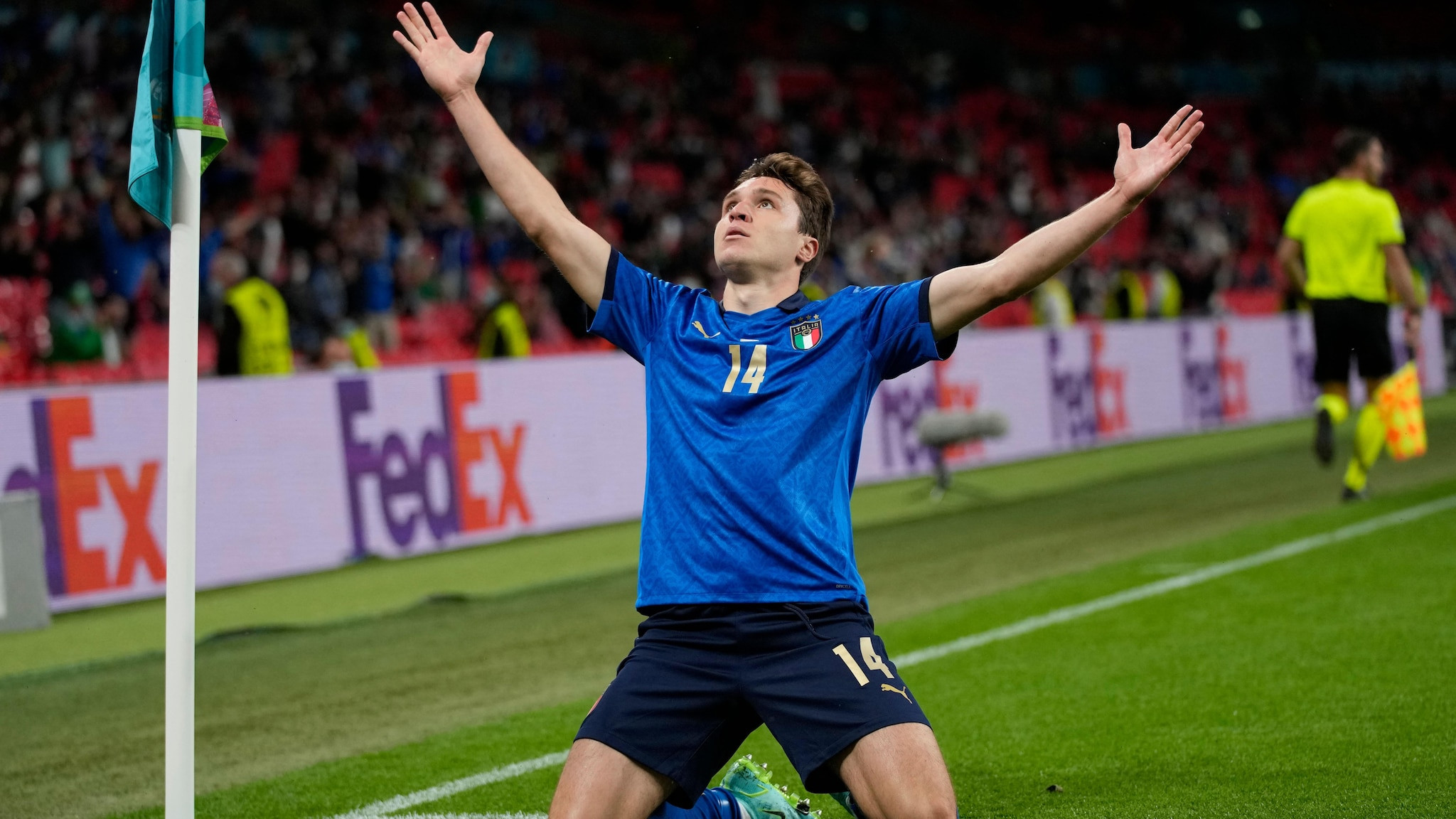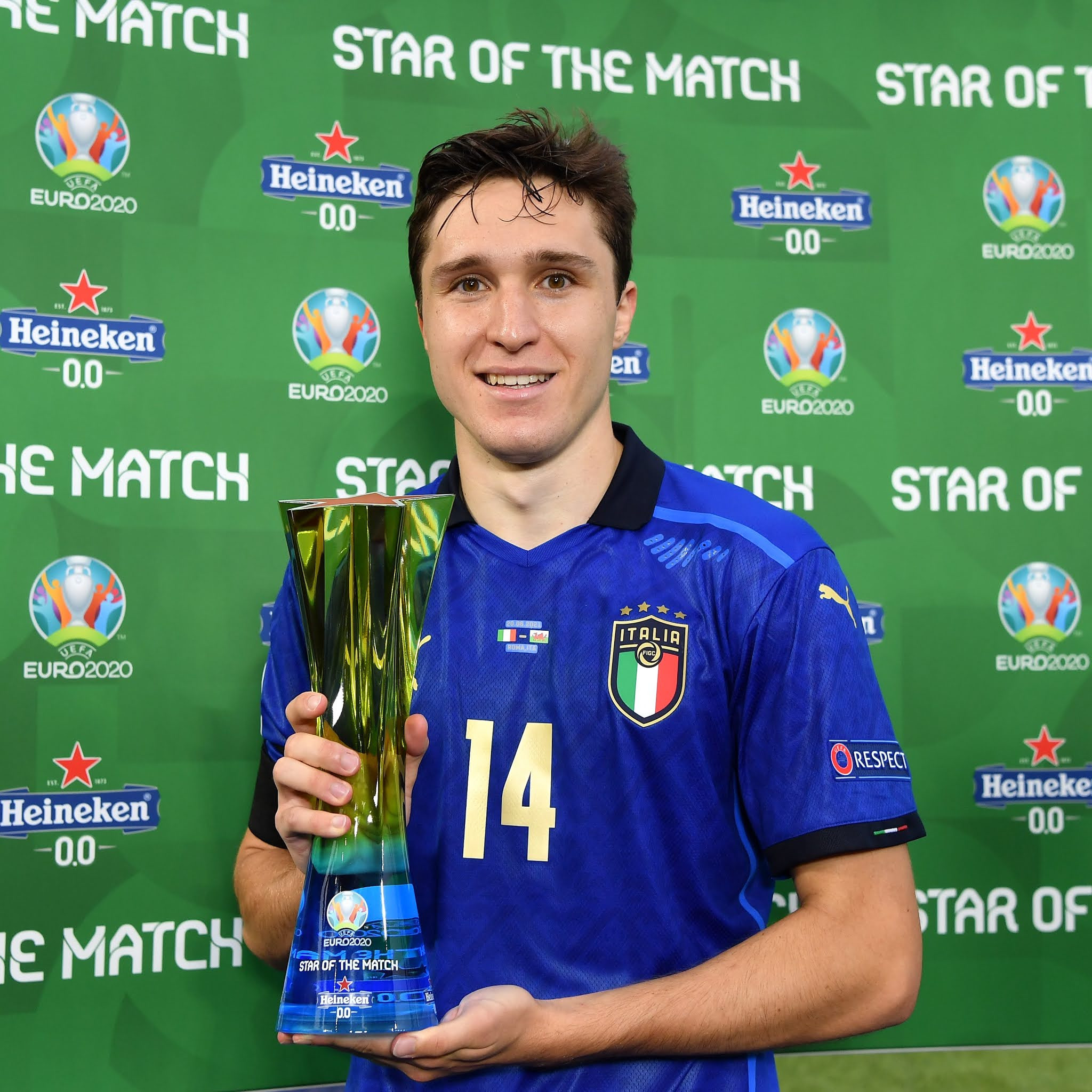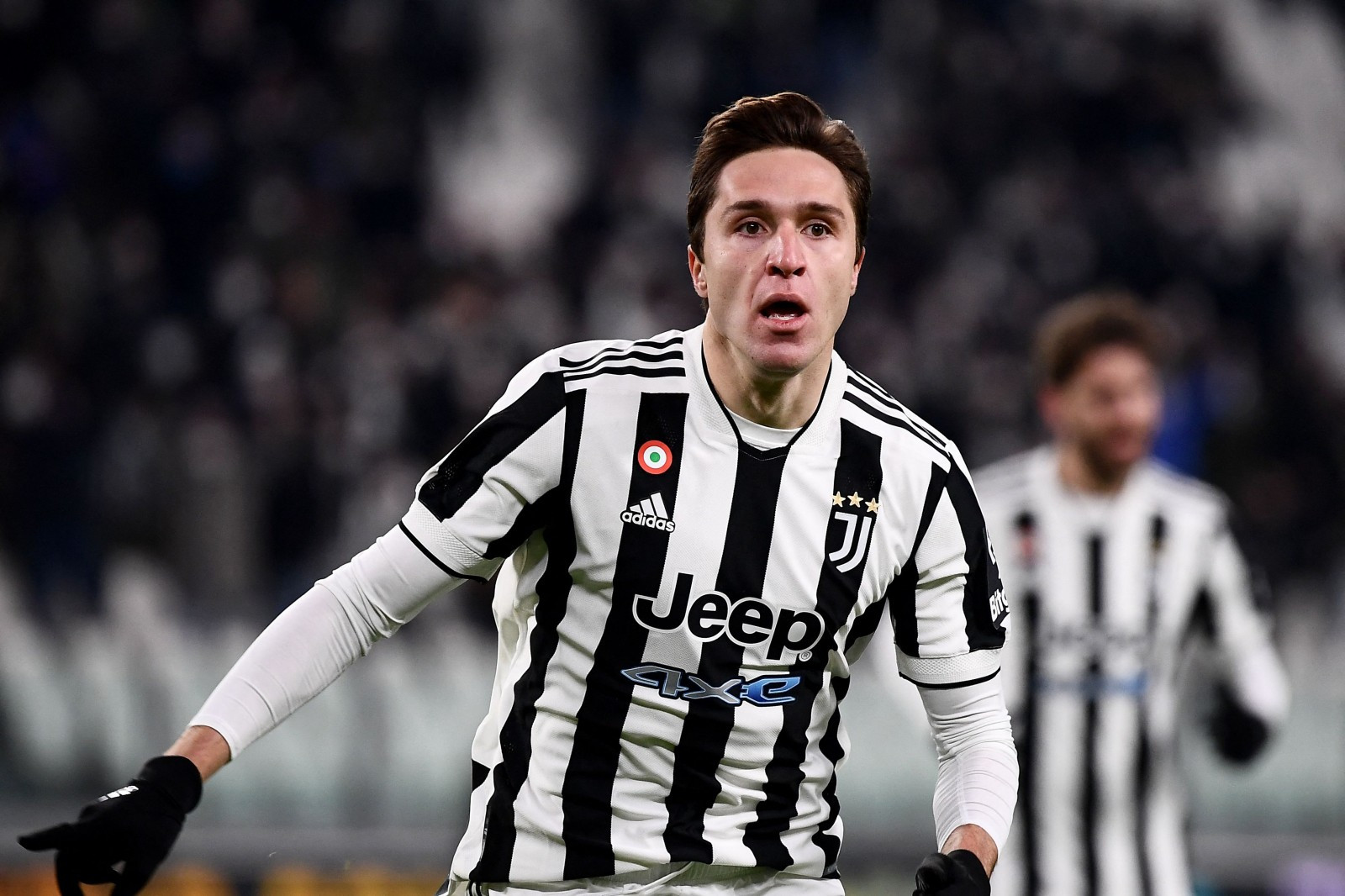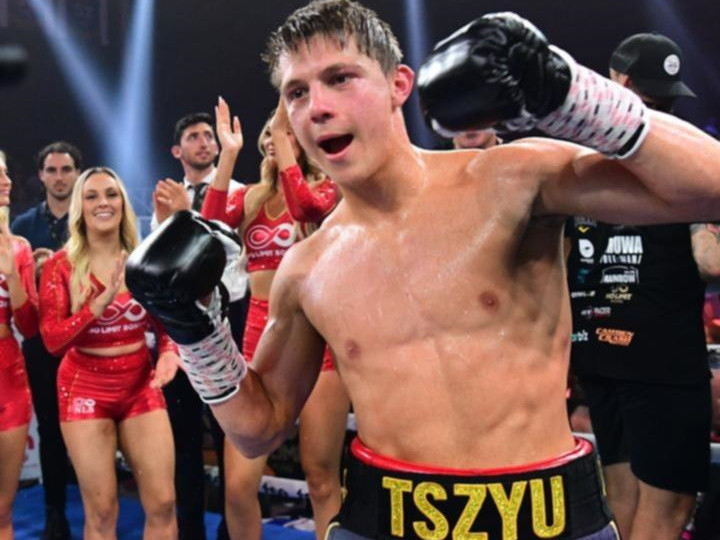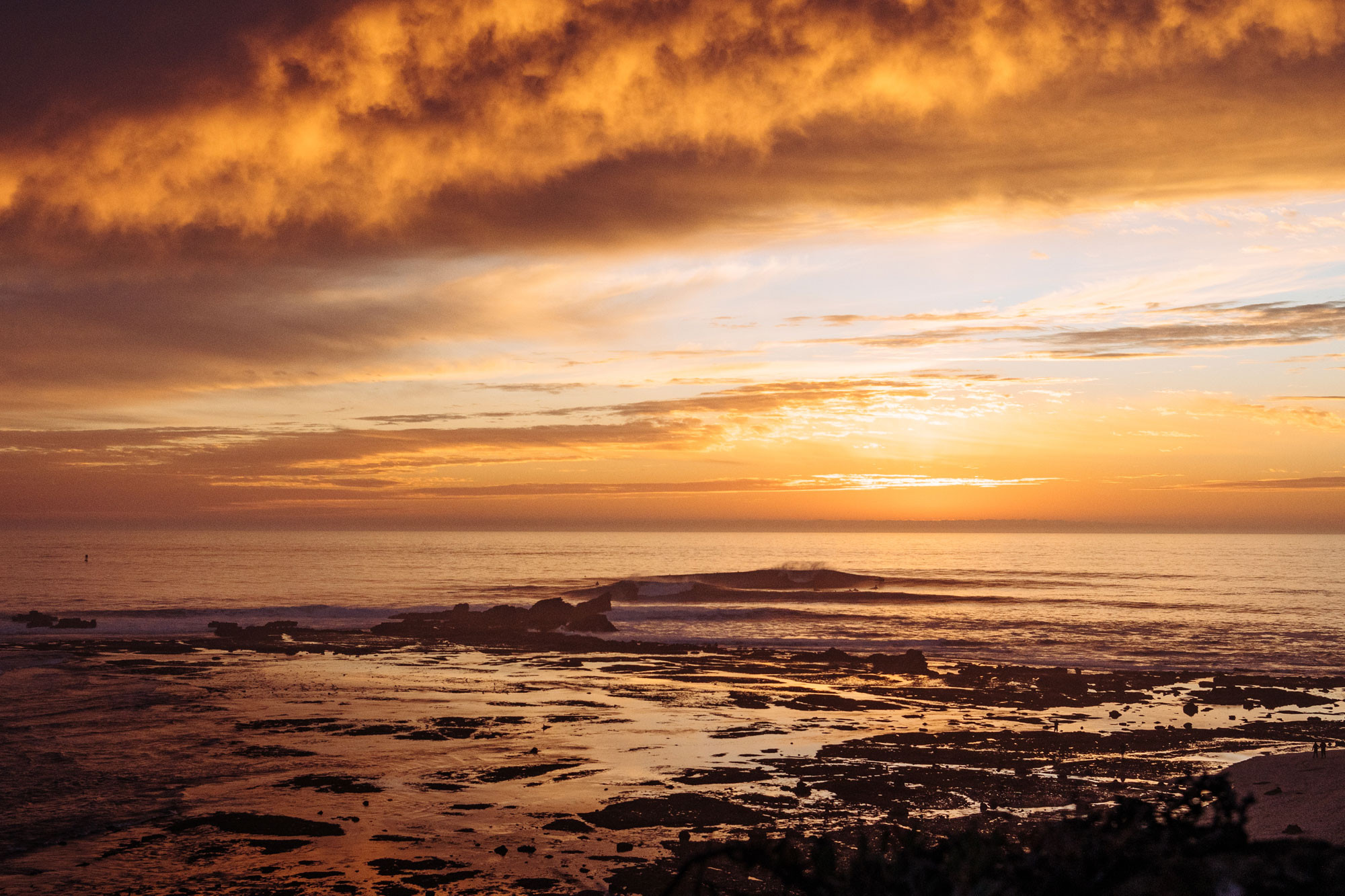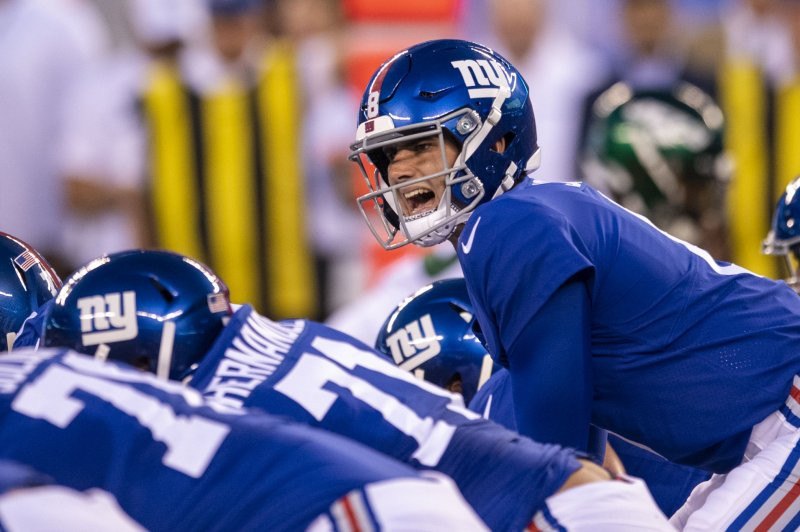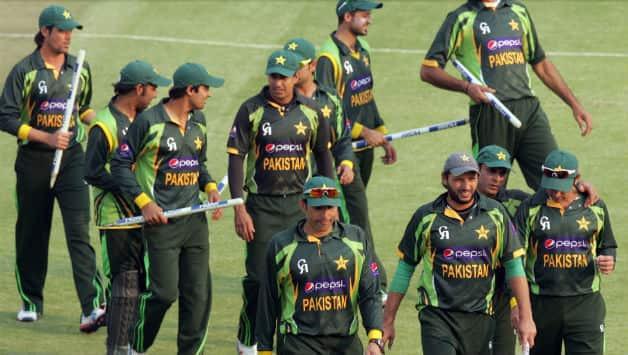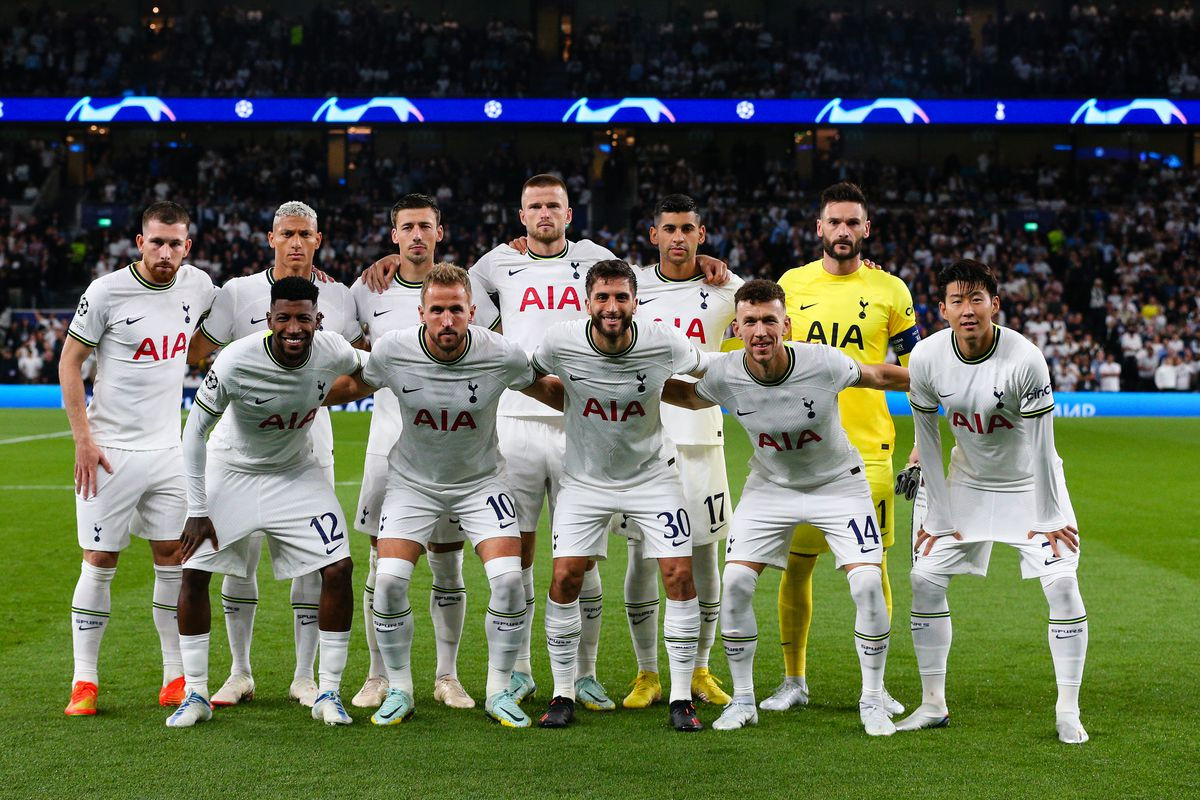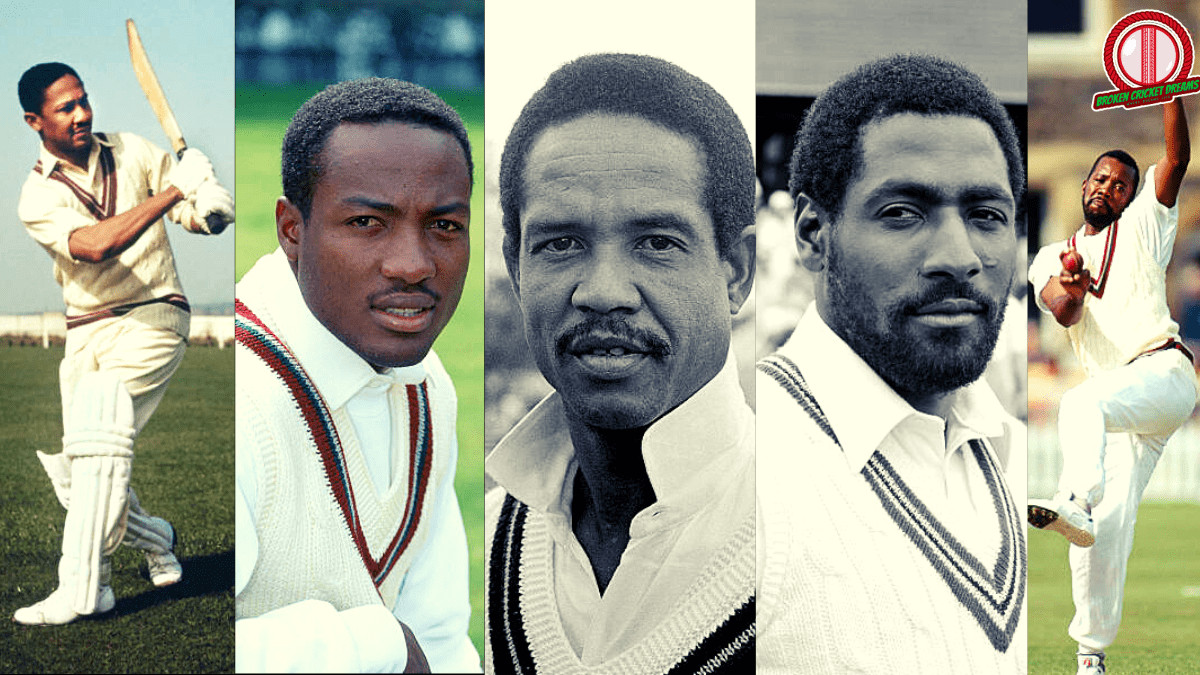Arne Slot is weighing up whether to hand Federico Chiesa his Liverpool debut against Nottingham Forest. Having remained at the club to work on his fitness during the international break, the Italy forward is in Slot’s thoughts for Saturday’s Premier League game at Anfield. During his pre-match press conference on Friday morning, the head coach said: “Federico has trained with the team now three or four times so let’s see how he does today and which decision I make because we have more than 20 players, for if I choose for a position or if I choose the ones that are the fittest at the moment.” Slot expects Alexis Mac Allister to be in contention to play after the midfielder appeared as a substitute for Argentina in midweek, but Harvey Elliott is definitely ruled out due to injury. The Dutchman stated: “Harvey is of course a big disappointment for him but not only for him, also for us because OK, he didn’t play that much in the first three games but he played a lot in pre-season and he showed himself really well so, of course, if he had stayed fit he would have had a lot of playing time in the upcoming fixtures. But now he isn’t [fit] and that also gives the chance to someone else. So it is, first and foremost, a blow for himself, and then also for us because I think availability is important in the stage of the season when we play seven games in 22 days, I think. So, it’s a blow for the both of us but he will work as hard as always to come back in the best possible way. He didn’t stay fit unfortunately so he is out for a longer time.” Otherwise, Slot reported that he has a full squad available for the meeting with Forest. He was also asked whether the upcoming run of seven fixtures in three weeks will lead to more squad rotation. “That’s something that I decide before every game,” he replied. “My former teams… we were actually able to play almost every game with the same players, but it’s a different league. I might have to adjust to that, but it also depends on what they show and by what they show I mean in terms of physique. In the first three games we were [in a] really strong physique but we only played one day each seven days. Now they have a point to prove and I assume that they all want to play every game. So, if they want to, they have to show up every time, also in quality, but especially in work-rate. We have more than 11 very good players so I can use more. I can’t tell you now if I am going to do so or not, that I am going to decide before every game that comes up. I get some feedback from medical staff, performance staff, whoever they are, [about] what's the best thing to do and we make the decision before every game.” Forest, meanwhile, may be without Ibrahim Sangare and Willy Boly at Anfield, while Danilo is a long-term injury absentee. Nuno Espirito Santo told the media on Thursday: “We have a doubt with Sangare and Boly and we know Danilo is out. We are assessing all of them. We have to wait a little bit to be 100 per cent sure. Boly has a calf injury. We are assessing all of them. We still have one more day and then we will see.” The visitors will also review the readiness of Ramon Sosa and Chris Wood after their exertions with Paraguay and New Zealand respectively during the international break. Nuno continued: “This is what we have to assess tomorrow. All of them are here, with the exception of Sosa, who arrives this afternoon. But we are assessing. This is the bad part of the international break, when they return we have to assess them. Long travels. Some of them have played more or less minutes. We have one day to assess all of them and make the decision.” Deadline-day signings Morato and James Ward-Prowse may make their Forest debuts this weekend, with Nuno saying: “Both of them have adapted well to the group and the group has received them very well. They are totally integrated, enjoying their football and preparing themselves for the chance when it comes.” ## Chiesa's Anfield Story This is Anfield. Hallowed be thy name. Only to Enrico Chiesa, it could have been anywhere. Instead of the Kop, all he saw were numbers and patterns of play flashing before his eyes. “I’m thinking about the game plan and the runs I need to make in order to keep the gaffer happy,” he said. Enjoy it? Soak in the occasion? It must have been a hell of a feeling to make his first start for Italy at a major tournament on this ground. But Chiesa was either emotionless or hiding what he truly felt. “Really,” he told La Repubblica. “I don’t feel anything. I’m cold like that.” It was only his second cap. He’d scored on his debut in the run-up to Euro 96, glancing home a corner kick whipped in by Alessandro Del Piero to complete a comeback from 2-0 down against Belgium. It had been quite the season. Chiesa had combined brilliantly with Roberto Mancini at Sampdoria and hit 22 goals in 27 games. To lead the line with Fabrizio Ravanelli against the Czech Republic must have been the stuff dreams are made of. Again, Chiesa said, he had none. “I’m only thinking about the job at hand.” It led La Repubblica to describe him as “mechanical”. Twenty-five at the time and about to make a big-money move to Parma, Chiesa did do his job for Italy. He cancelled out Pavel Nedved’s opener with a tidy finish. Federico, Liverpool’s new signing, wasn’t born when Enrico scored it. He watched clips of it growing up. But his old man never mentioned that it had come at Anfield. The memory itself was bittersweet. Ten minutes after his goal, Chiesa’s team-mate Luigi Apolloni got sent off. Italy’s coach Arrigo Sacchi resisted the muscle memory of 1994 when he substituted Roberto Baggio after Gianluca Pagliuca’s red card against Norway at Giants Stadium. He left Chiesa on but to no avail. The Czechs scored again, Italy lost, and they were eliminated in the group stages after a 0-0 draw against Germany at Old Trafford where Gianfranco Zola, who took Chiesa’s place in the side, missed a penalty. Old Trafford, incidentally, was where Federico watched his first Liverpool game. He was in the stands for the 3-0 win over Manchester United against whom Mohamed Salah put on a masterclass, assisting both of Luis Diaz’s goals and scoring himself. History aside, it was easy to see why Chiesa said “yes, immediately,” when Richard Hughes called him to talk about joining Liverpool. The collective display also laid bare the challenge Chiesa faces to get into this team on a regular basis rather than as a mere rotational piece. ## From European Glory to Juventus' 'Bomb Squad' Three years ago, a move to Anfield would have felt like the logical next step in his career. Federico had not just emulated his father by scoring at the Euros. He had gone further. A lot further. His extra-time winner against Austria and opening goal against Spain turned him into a star as Italy unexpectedly won the tournament for the first time since 1968. “Chiesa at the end played seven games,” Italy’s captain Giorgio Chiellini told UEFA. “But really, he played seven minutes and in that seven minutes he was amazing.” Those moments generated huge, perhaps disproportionate, excitement about Chiesa’s talent. He’d already been signed by Juventus, who have always built teams around a core of national team players. Chiesa, then only 22, was supposed to be the Old Lady’s leading man for years to come. He joined a club on a nine-year winning streak in Serie A. He offered a future beyond Cristiano Ronaldo and spoke like someone who could one day take the armband from Leonardo Bonucci and Chiellini. Alas, it did not turn out that way. Married to Lucia Bramani at a ceremony in Grosseto this July, Chiesa returned to pre-season with Juventus to find his club wanted a divorce. A new coach who seemed perfect for him, Thiago Motta, did not include him in his plans. Chiesa, along with Victor Osimhen at Napoli, was the highest-profile member of a ‘bomb squad’ in Serie A. His team-mate, the USMNT midfielder, Weston McKennie was also out in the cold. Motta then welcomed him back in. It seemed to open the door for Chiesa. But Motta was unequivocal. “I respect him, but nothing has changed,” the coach told reporters. Upon leaving for Liverpool, Chiesa offered his version of events in a post on Instagram. He claimed Juventus never offered to extend his contract which was due to expire in 2025. ## A Bargain for Liverpool On the face of it, this enabled Liverpool to get a bargain. They agreed to pay €12million (£10.1m; $13.2m) over four instalments with €3m in performance-related add-ons. This caused Fiorentina’s owner Rocco Commisso to come over all smug. He had sold Chiesa to Juventus for a total package worth €60m four years ago. “Who got the better end of the deal? Them or Rocco,” he asked in an interview with Gazzetta dello Sport. A small loss for Juventus, Chiesa was pure profit for Fiorentina. Profit the club didn’t expect to make when he joined the club as a 10-year-old. The temptation when writing about the son of a footballer who also went on to make it is that he is predestined. Football ran in the Chiesa family. Federico remembers being in the stands at the Ennio Tardini when his dad was up front with Hernan Crespo. He grew up kicking a ball around with Marcus Thuram. Future World Cup winners used to drop by for dinner. “Gigi Buffon held me when I was a little nipper,” Chiesa recalled in Turin. “My dad always likes to tell me about the time (Gigi) came round with his hair all stuck up nice and spiky with gel. As soon as I laid eyes on him, I started crying.” ## The Rise of Federico Chiesa Much later, they would play together; a testament to Buffon’s longevity and Chiesa’s relative precociousness. While Enrico wound down his playing career in the rolling hills of Tuscany, Federico could be found at Settignanese, a football club right on the doorstep of the national team’s headquarters in Coverciano. It’s where the kids of Fiorentina players go to play and ex-Fiorentina players go to coach. The late Kurt Hamrin, Fiorentina’s all-time top scorer who was known as the ‘Little Bird’ throughout his time at the Artemio Franchi, took Federico under his wing. Maurizio Romei, Settignanese’s president, remembers being struck by Chiesa’s movement and coordination. But when Fiorentina drafted him into their youth ranks he wasn’t sure he’d make it. The most talented kids tend to be fast-tracked and made to play one, two or three years above. Chiesa was instead made to play with the year below. Of the other sons of footballers in the academy, Riccardo Sottil, a fellow winger, was considered the better prospect. Sottil, who is still at Fiorentina, played for Italy at youth level. Chiesa did too but not as much as you might think. As a student at the International School of Florence, where he was educated in English, Chiesa contemplated going to university to do physics. But Paulo Sousa changed all of that. “I believed in him when he couldn’t even get a game with the under-19s and brought him with us to train with the first team in pre-season,” the former Fiorentina coach told Gazzetta dello Sport earlier this month. It was a surprise when, out of nowhere, Chiesa started Fiorentina’s first league game of the season away to hated rivals Juventus. Sousa told him an hour and a half before kick-off and watched the colour drain from his cheeks. This was in 2016. Chiesa was still only 18. That night at the Allianz, he did a job at wing-back in a 2-1 defeat to a team that would reach the Champions League final in Cardiff come the end of the season. It was the first of 34 appearances for Chiesa who gradually became the player on whom Fiorentina fans pinned their hopes. Hat-tricks against Bologna, curlers on his right foot from an inverted position on the left and those pulsing, perforating runs, made buying a ticket at the Artemio Franchi worthwhile at a time when the team couldn’t get out of eighth place. The older lads in the Curva Fiesole got to tell their kids about how they’d watched Federico’s dad partner Gabriel Batistuta in the Champions League and score against Barcelona at Camp Nou. They’d seen Enrico deliver in both legs of the Coppa Italia semi-finals against Milan in 2000 on the way to winning the cup too. Federico was one of their own; someone to be protected vehemently when, for example, Atalanta coach Gian Piero Gasperini called him out for diving. ## From Fiorentina to Juventus: A Difficult Transition On the flip side, Florence is a demanding place to emerge. It’s a restless, ambitious one-club city that’s used to great players. Chiesa came through at a difficult time. There was a change of ownership, the club’s captain Davide Astori passed away in the team hotel before a game against Udinese, Chiesa had five coaches in four years. When he left for the old enemy, his brother, a ball boy at Fiorentina and promising footballer himself, was abused online and a banner appeared outside the Franchi saying: “There is no greater disrespect than betraying those who raised you. Florence is no longer your home. Traitor.” Meanwhile, the national team failed to qualify for the World Cup for the first time in 60 years. This only intensified the search for a new hero. Chiesa’s debut for Italy came in the spring friendlies that followed the infamous play-off defeat to Sweden. Interim coach Luigi Di Biagio had worked with him at under-21 level and started him for a friendly at the Etihad against Argentina, then brought him on for another exhibition game a few days later against England at Wembley. Injuries and deadline day moves like his Liverpool switch aside, Chiesa has been part of the Italy set-up ever since. Di Biagio and, particularly, his successor Roberto Mancini changed system to 4-3-3 to give wingers like Lorenzo Insigne and Domenico Berardi the chances a 3-5-2 had denied them in the past. Chiesa’s development, in the meantime, was supposed to continue as he made the step up to Juventus. It did not start as he would have liked. Chiesa was sent off on his debut, a 1-1 draw with Crotone, as rookie coach Andrea Pirlo began his unexpected and short-lived Juventus reign on the wrong foot. Nevertheless, it was Chiesa’s best season in Turin. The team played to his strengths. Juventus pushed the defensive line higher, they were 2-3-5 in the possession phase and Chiesa went into the Euros with 24 goals and assists across all competitions. ## The Euros Success and the Injury Setback Arguably one of his greatest displays came in Juventus’ Champions League round-of-16 game against Porto. He kept the tie alive with an away goal in the 2-1 defeat at the Dragao and did so again with a brace in the second leg at the Allianz, single-handedly forcing extra time only for 10-man Porto to score a free kick through Sergio Oliveira. It was the gut punch in a disappointing year for Juventus, who finally relinquished their title after a nine-year hegemony. At least their face was partially saved in the Coppa Italia, which Juventus won in Reggio Emilia amid a creeping sense that it might be opponents’ Atalanta’s year. One-all at half-time, Chiesa plundered the winner with 15 minutes to go. He told reporters: “Before the game, I looked at Gigi (Buffon) and said: ‘Gigi, you’ve won a few trophies, including a couple with my dad. Now you’ll see, you’re going to win one with me’.” It wasn’t enough to make Chiesa a starter for Italy at the Euros. Berardi had scored 17 league goals to Chiesa’s eight. He’d done it with less talent around him, albeit on a team coached by Roberto De Zerbi in Sassuolo. Berardi, it should be said, would now have a far higher profile if he’d left the small-town club earlier in his career. He has scored more than 100 goals in Serie A and started three of Italy’s first four games at the Euros in 2021. The only one he didn’t was the final group stage match against Wales when his team had already qualified. Austria, however, changed everything. It has been forgotten how close Italy came to going out that night. Marko Arnautovic thought he had given Austria the lead at Wembley only for VAR to disallow his goal. Chiesa didn’t come on for Berardi until the 84th minute. He then scored in extra time. These, as Chiellini alluded to, were Chiesa moments. Up until the semi-final, the X factor in the Italy team had been Leonardo Spinazzola, who ruptured his Achilles against Belgium. Mancini had built a record-breaking 37-game unbeaten team not around Chiesa but the width and skill of Spinazzola and Lorenzo Insigne on the left, and the neat, composed passing of Marco Verratti, Jorginho and Nicolo Barella in midfield. When pressure came, as it did against Spain in the semi and England in the final, the rearguard of Chiellini and Bonucci kept Italy in the game until Verratti and Jorginho regained control. But arguably more memorable than Gianluigi Donnarumma’s penalty heroics, Insigne’s curler against Belgium and Chiellini’s antics either with Jordi Alba or Bukayo Saka, were the exhilarating moments Chiesa provided against Austria and Spain. They were flashes. And yet they burned bright and long, dazzling people into thinking he’d played an entire tournament on that level. He captured the imagination. When Ronaldo left Juventus for Manchester United on deadline day at the end of that summer, it all of a sudden seemed to matter less because it felt like Chiesa’s potential loomed larger than ever before. Pirlo was gone, and Max Allegri was back. The previous season needn’t be thought of as anything other than a blip. In the end, though, it turned out Juventus weren’t back after all. Chiesa also blew out his knee. His reputation as a big-game player was sorely missed not only by his club but also by his country, who failed to qualify for the World Cup in Qatar after a shock defeat in a play-off semi-final against North Macedonia. Chiesa didn’t start for Juventus for more than a year and when he did it was as a wing-back in a 5-1 defeat to Napoli where his rustiness and lack of positional know-how were ruthlessly punished. It was a tense period at Juventus. The board resigned amid an investigation into the club’s transfer dealings and other financial affairs. Executives were banned. Points were deducted, re-assigned then deducted again. Elite teams are stressful at the best of times. This was not an easy environment in which to return, not least because some of the wiretaps leaked to the media, and seen by The Athletic, were about Chiesa. One was a snippet reported by Corriere della Sera in which the then football director Federico Cherubini criticised his old boss Fabio Paratici for paying “too much” for him and Dejan Kulusevski. Another reported by the same paper was of the former chairman Andrea Agnelli relaying Cherubini’s opinion that Chiesa “does not seem to him to be the profile of player who can stay at Juventus for a long time because his entourage is seeking substantial raises.” Those salary demands, which Chiesa belatedly denied in his goodbye post on Instagram, did not appear justified. He has only got into double figures for goals once in the league in Italy and that was in his final full season at Fiorentina (10). Salah, who was at Fiorentina when Chiesa was in the academy, scored 14 and then 15 in his final two seasons at Roma at the age Chiesa is today. This time last year, Allegri asserted “he has to score between 14 and 16 goals. He’s wasted out wide.” Chiesa then went on to find the net four times in his first five games. Revamps to Allegri’s coaching staff appeared, initially, to make the style more in line with the latest trends. “We have to play like this. This is modern football,” Chiesa said after a 1-0 win against Udinese. However, as the season wore on Juventus reverted to a low block, meagre chance creation team that ground out clean sheets and edged games. For a second year in a row, it was enough to contend for the title until the spring when they precipitously regressed to the mean. While the football did not play to Chiesa’s strengths, it is too easy to mitigate his season citing Allegri’s negativity. Juventus reached the Champions League final in 2015 by dropping a centre-back in order to play two strikers and get Paul Pogba, Claudio Marchisio, Arturo Vidal and Andrea Pirlo all into the same team. They returned to the final in 2017 by balancing a team that simultaneously fielded Paulo Dybala, Gonzalo Higuain, Mario Mandzukic and Juan Cuadrado. Anyone who saw Juventus play Dortmund, Bayern Munich, Barcelona and Real Madrid in those years will tell you Allegri did not play anti-football. At least not in those games. Dusan Vlahovic also creditably scored 16 league goals last season, so while it was hard to score at Juventus, it was not impossible. By playing closer to the Serb, the thinking was that Chiesa would be able to vibe off him. But his natural instincts meant he kept drifting out to the flank, away from goal, disconnected from his partner. Chiesa often cut a frustrated figure. He played 90 minutes nine times. On the one hand, Allegri was still trying to protect him as he returned from injury. On the other, it seemed he felt Kenan Yildiz, a teenage No 10 who seemed far more comfortable between the lines, dovetailed better with Vlahovic. “I’m always the first off,” Chiesa seemed to mouth in dissent as he came off in the Derby della Mole in April. It was the fourth time Allegri hooked him before the 70th minute. Nevertheless, after winning the Coppa Italia again in May, Chiesa did not, at the time, believe he’d played his last game for Juventus. “I want to stay at this great club,” he said in a press conference. “I want to take the club back to where it deserves.” As Chiesa left for the Euros, he thought he’d still be playing at the Allianz, not at Anfield. ## Chiesa's Departure From Juventus and the Move to Liverpool While his sale didn’t come as much of a surprise within the context of Juventus’ desire to bring the wage bill down, it was striking that Motta didn’t lobby sporting director Cristiano Giuntoli to find cuts elsewhere in order to keep Chiesa. The doping ban Pogba received had already alleviated Juventus’ operating costs and Wojciech Szczesny’s pay-off and subsequent retirement helped. None of this stopped Juventus from showing Chiesa the door. Left out of the squad for the opening game of the season against Como, Motta promoted a no-name winger, Samuel Mbangula, from the club’s Next Gen project. Mbangula scored and assisted on his debut. Juventus then signed wingers Nico Gonzalez and Francisco Conceicao. They could not have been firmer in their intention to move on from Chiesa. Why he didn’t move until the end of the summer was ultimately down to his valuation coming down and a willingness to only leave for the right club. None of this has stopped Arne Slot or Liverpool fans from getting excited about him. One way of looking at Commisso’s question about who got the better end of the deal is to remember Liverpool have acquired a €60million player for 20 per cent of that price and he only turns 27 next month. It won’t take the pressure off the club to sign Salah to a new deal but at least Liverpool have a replacement if no agreement is reached. Even in the era of PSR, €12m is peanuts and low-risk for Liverpool who now have a player who can cover for and compete with each member of the team’s front three. “He works really hard, on and off the pitch, and he combines that with scoring goals,” Slot said. “He’s really aggressive without the ball. He can play in so many positions — on the right, the left, and maybe even in the middle — so that makes him an interesting signing.” Having already emulated his father by scoring at the Euros, Chiesa can now match him at Anfield too. Fede, as his teammates call him, means ‘faith’ in Italian. Juventus did not keep it. Liverpool have shown it. Now it’s up to him to deserve it.
Nneka Okoro
Sports Reporter
Covering sports events and bringing you live updates.




